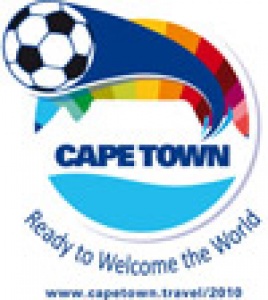The Cape Tourism Sector signs the code of responsible pricing for Cape Town

At midday on Tuesday, 16 March 2010, Cape Town’s major tourism role players will present a united front in the campaign against overpricing during the 2010 FIFA World Cup™ when they sign the Code of Responsible Pricing for Cape Town.
Representatives of Cape Town Tourism, the City of Cape Town, the Western Cape Ministry of Finance, Economic Development and Tourism, Cape Town Routes Unlimited, FEDHASA, SATSA, Fair Trade in Tourism South Africa, Backpackers South Africa and The Portfolio Collection will gather at Cape Town Tourism’s City Centre Visitor Information Centre for the signatory ceremony.
The event includes addresses by Cape Town Tourism CEO, Mariette du Toit-Helmbold, and Minister Alan Winde from the Ministry of Finance, Economic Development and Tourism.
Cape Town Tourism’s Du Toit-Helmbold says that the tourism body has been consistently firm in its stance on pricing and has embarked on an industry awareness campaign around responsible pricing and practice in the run up to the World Cup. “We have taken heed of the lessons that other destinations have learnt during global events in the past, and we have communicated these messages to our membership and the tourism sector as a whole.”
Cape Town is an immensely popular tourism destination; voted by the UK Telegraph as their readers’ favourite holiday destination in 2009. “We are intent on using the great marketing opportunity that the 2010 FIFA World Cup™ affords us to showcase the destination as a place to which you want to return. High prices and a lack of good service will not reflect well on us and we are focusing all our energy on ensuring that not only our infrastructure but also our mindset is on target and ready to welcome the world. The Code is an industry tool to visibly and effectively manage perceptions towards a realistic and positive pricing picture of the Cape Town tourism industry”, comments Du Toit-Helmbold.
ADVERTISEMENT
Cape Town Routes Unlimited CEO Calvyn Gilfellan says: “Viewing the 2010 FIFA World Cup™ as a cash cow will harm South Africa’s burgeoning tourism industry. Up to 290,000 extra visitors are expected to come over the five years after the tournament because of South Africa’s heightened visibility. The Code is Cape Town and the Western Cape’s united voice against price-gouging. “
The Code of Responsible Pricing for Cape Town has been created around four core principles:
‘Fair Value’ means that the tourism sector will create fair and reasonable rates for the 2010 FIFA World Cup™ that are linked to current seasonal rates.
‘Responsible Tourism’ underlies Cape Town’s commitment to be a destination that values and promotes social responsibility and environmental protection.
‘Sustainable Tourism’, whereby businesses will be expected to be mindful of the interests of maintaining a legacy for Cape Town beyond the 2010 FIFA World Cup™.
‘Consumer Protection’ against hidden costs and fees that surprise and annoy consumers.
“The Code of Responsible Pricing for Cape Town is a very important charter,” says du Toit-Helmbold, “as the leadership of the tourism industry, we are collectively committed to the code and the future preservation of a successful Cape Town brand. We are eager to ensure that Cape Town’s good reputation is not spoiled by greedy individuals out to capitalise on the short term opportunities the FIFA World Cup™ offers. A few weeks of distorted pricing may well be at the expense of a responsible sector that has worked non-stop at putting this destination on the global map.”
Cape Town Tourism has committed to spreading awareness of The Code through their international PR network and through their relationship with members and stakeholders in the tourism trade.
Says du Toit-Helmbold, “For the most part, accommodation establishments in Cape Town are posting rates for the 2010 FIFA World Cup™ that are equivalent to their peak season rates. A good indication of the public’s favourable response to this is that many of them are already fully booked. Average costs for a night in a centrally located bed and breakfast are forecast at no more than R 500 - 800 (£40- £64.10) , whilst an award-winning four star city hotel is charging on average R1900 – R2 400 (£152.24 –£192.30) per night for a room. Renowned five-star waterside hotels are asking in the region of R 5000 per person per night, sharing (£400).”

